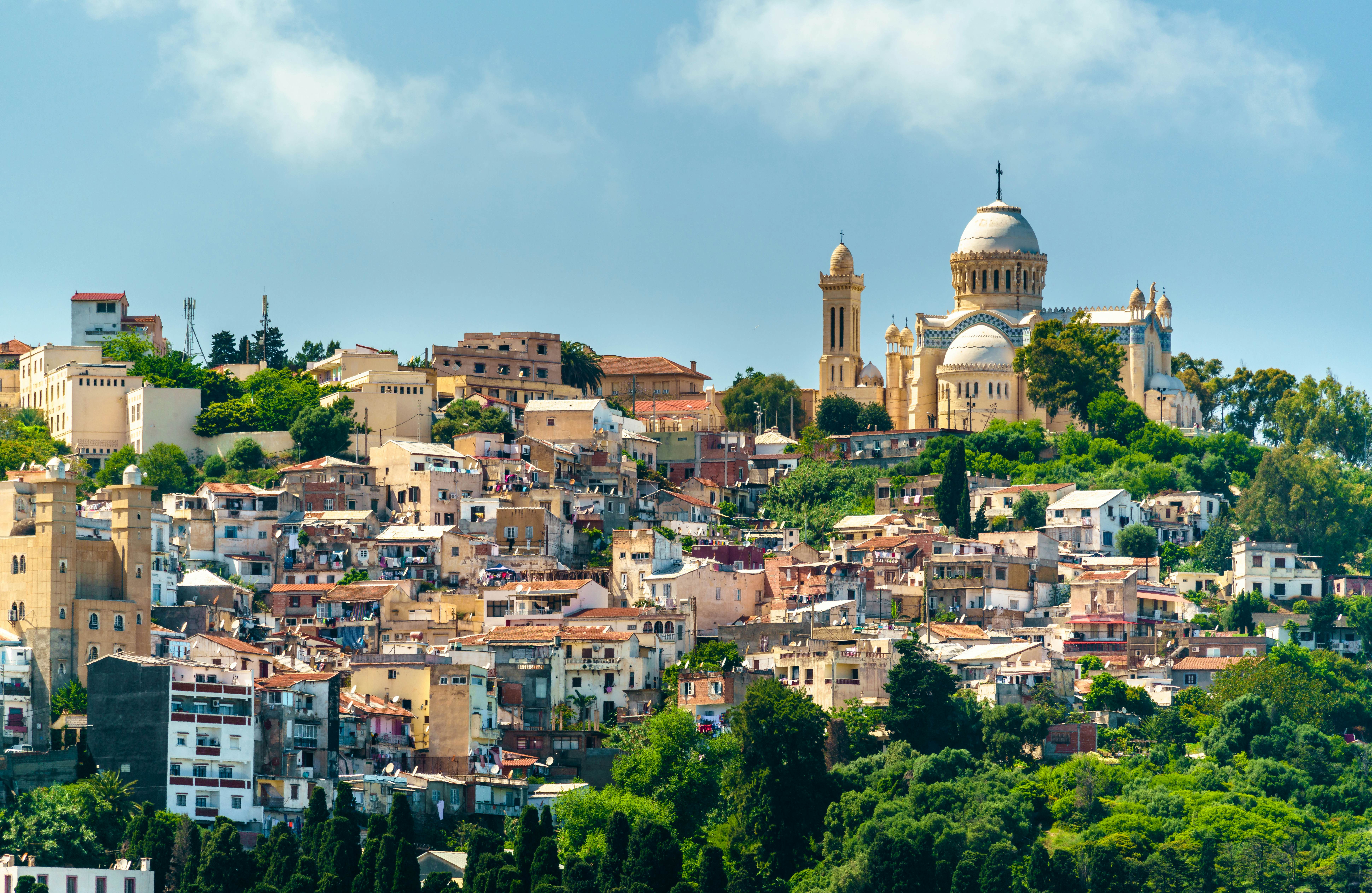

Algeria
Population
Land Area & Density
GDP
Minimum Wage
Capital City
Continent
Historical Algeria GDP

About Algeria
Algeria, officially known as the People's Democratic Republic of Algeria, is the largest country in Africa and the Arab world, spanning over 2.38 million square kilometers. Located in North Africa, it is bordered by the Mediterranean Sea to the north, Tunisia and Libya to the east, Niger and Mali to the south, Mauritania and Western Sahara to the southwest, and Morocco to the west. Algeria's diverse landscape includes the Sahara Desert, which covers more than 80% of its territory, as well as the Atlas Mountains and fertile coastal plains. The capital, Algiers, is a vibrant city known for its French-colonial architecture and bustling Casbah. With a rich history influenced by Berber, Arab, Ottoman, and French cultures, Algeria gained independence from France in 1962 after a prolonged and bloody war. The country is a major producer of oil and natural gas, which form the backbone of its economy. Despite its vast natural resources, Algeria faces challenges such as political instability, economic diversification, and youth unemployment. Its population of over 44 million people is predominantly Arab-Berber, and Islam is the state religion, shaping much of its cultural and social fabric.
Key Facts
- Official Language
- Arabic, Berber
- Time Zone
- UTC+0
- Calling Code
- +1